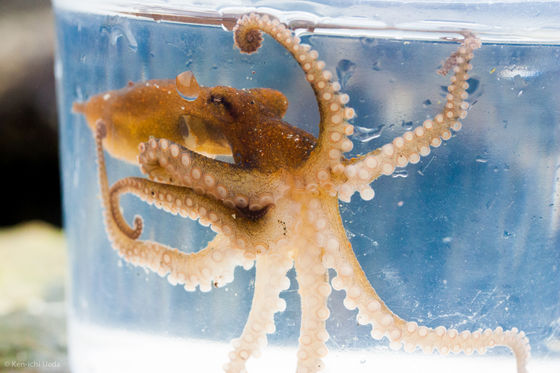Genome analysis reveals that the oldest sex chromosomes originated from ``octopus'' ancestors 248 million years ago

Detailed analysis of octopus genes reveals that there are sex chromosomes that determine male and female octopuses, which until now could only be distinguished by whether they lay eggs, and that these sex chromosomes date back at least 250 million years. It turns out that it has the oldest origin.
Cephalopod Sex Determination and its Ancient Evolutionary Origin Revealed by Chromosome-level Assembly of the California Two-Spot Octopus | bioRxiv
Oldest known animal sex chromosome evolved in octopuses 380 million years ago
https://www.nature.com/articles/d41586-024-00637-0
Octopuses Might Have The Oldest Sex Chromosomes in The Animal Kingdom : ScienceAlert
https://www.sciencealert.com/octopuses-might-have-the-oldest-sex-chromosomes-in-the-animal-kingdom
Oldest known sex chromosome emerged 248 million years ago in an octopus ancestor | Live Science
https://www.livescience.com/animals/octopuses/oldest-known-sex-chromosome-emerged-248-million-years-ago-in-an-octopus-ancestor
Whether a person is born male or female is determined by the X and Y sex chromosomes . On the other hand, it was unknown until now what determines the sex of octopuses, so experts could tell the sex by which individuals lay eggs and which individuals produce sperm. It was also thought that, like some reptiles and fish, whether an octopus becomes male or female depends on environmental factors such as temperature.
Now, a research team from the University of Oregon in the United States has analyzed the genes of the California two-spot octopus (Octopus bimaculoides), the first cephalopod whose entire genome has been sequenced, to identify the genome that separates males from females. succeeded.

by
The genome that determines the sex of an octopus was found on the 17th chromosome, and males have two of these. In contrast, female octopuses had only one chromosome, number 17.
In the case of humans, ``XX'', which has two X chromosomes, makes you female, and ``XY'', which has one X and one Y, makes you male. On the other hand, the chromosomes of octopuses are represented by Z, and while male octopuses have two Z chromosomes (ZZ), females have only one, so they are expressed as 'Z0'.
To find out whether this system is common to other cephalopods, the research team compared the genomes of three octopus species, three squid species, and the nautilus, a distant relative of octopuses and squid. Only squid and octopus have this system. This indicates that the evolution of sex chromosomes occurred after the nautilus lineage diverged from the lineage that led to modern squids and octopuses.
Based on this, the research team proposed that the Z chromosome appeared between 455 million and 248 million years ago, when the ancestors of octopuses and squids diverged from the nautilus.

The oldest known animal sex chromosomes are thought to have evolved in sturgeons about 180 million years ago, and if this discovery is correct, this record will be significantly broken. Become. In addition, the sex chromosomes of some insects are said to have originated 450 million years ago, and the sex chromosomes of cephalopods, which appeared as early as 455 million years ago, have an older history than the sex chromosomes of insects. may have.
The research team has published their findings on the preprint server bioRxiv, and the paper has not yet been peer-reviewed. Sarah Carey of the Hudson Alpha Institute for Bioengineering, a sex chromosome expert who was not directly involved in this study, told the scientific journal Nature, ``The data presented in this paper 'This clearly suggests that the human body has the oldest sex chromosomes of both animals and plants. This is a really cool time to be working on the genetics around sex chromosomes.'
Related Posts:







